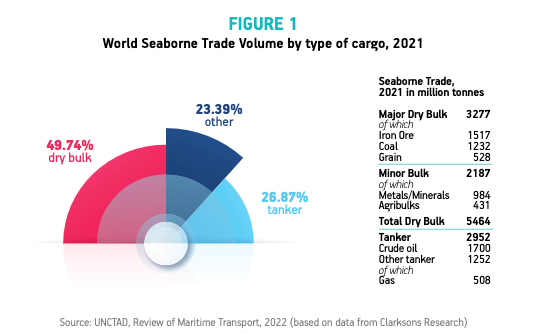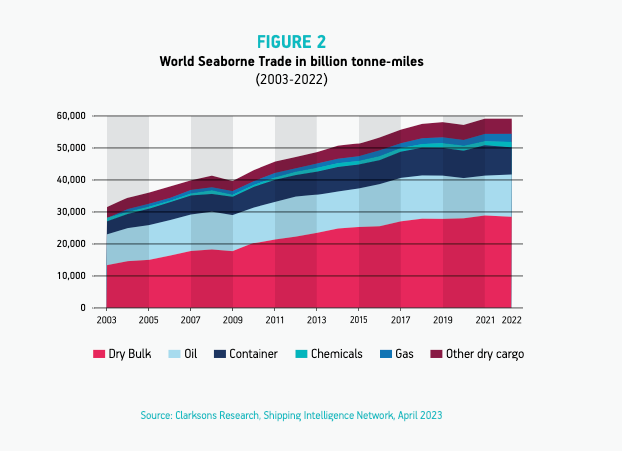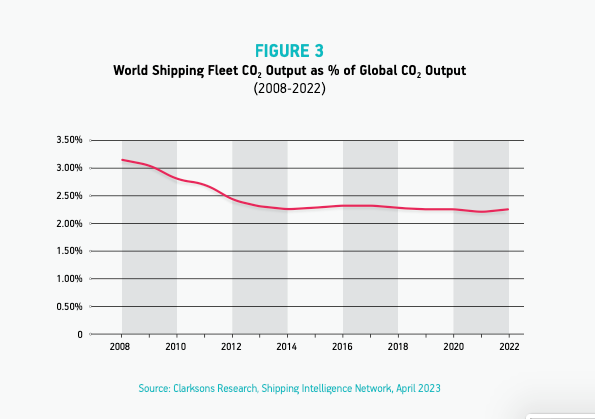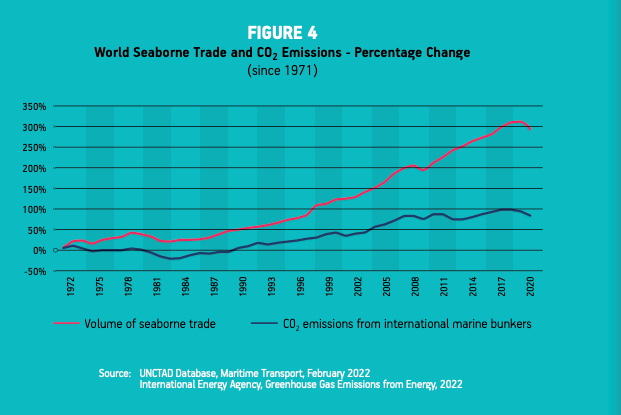
Shipping: The Life Force of Global Trade and Economy
Maritime transport is the backbone of global trade, as almost 90% of goods are transported by sea. The livelihoods of billions of people worldwide depend on the smooth operation of the shipping sector, which offers an indispensable service.
Shipping is, thus, crucial for the welfare of citizens around the world, ensuring, inter alia, the supply of the vast majority of essential goods, energy products and raw materials (Figure 1).
Especially, with regard to tonne-miles, the bulk/tramp sector provides more than 85% of seaborne transport services globally (Figure 2). Shipping is the enabler of world trade, it contributes to global cooperation and allows disparate societies to meet and mutually benefit. Shipping connects countries, economies and people.
Shipping is the most energy efficient and an environmentally friendly mode of transport. Emissions from ships are estimated to be in a range of 1.8%1 to 2.3% of global CO2 emissions2, with a declining trend (Figure 3).



The last 50 years have seen a large expansion of seaborne trade but not a proportionally sizeable rise in CO2 emissions from shipping (Figure 4).

1. Crippa et. al, CO2 emissions of all world countries - JRC/IEA/PBL 2022 Report, Publications Office of the European Union, Luxembourg, 2022, p.12
2. International Energy Agency, World Energy Outlook 2022 Free Dataset, January 2023
